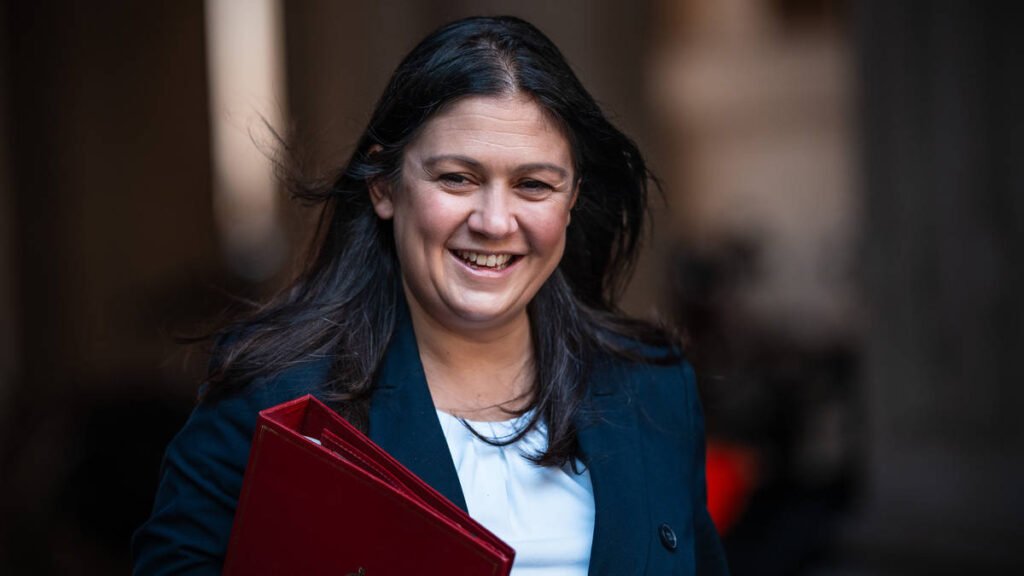20 June 2025, 22:30 | Updated: 20 June 2025, 22:48

Picture:
Getty
Culture Secretary Lisa Nandy has announced a £380 million boost for the nation’s creative industries, in an effort to ensure the UK is a “creative superpower”.
The cash injection is expected to double private investment into the creative sector, which accounted for 5.7% or roughly £124 billion of the UK economy in 2023.
Ms Nandy has said the investment would “boost regional growth, stimulate private investment, and create thousands more high-quality jobs”.
In a statement, the Department for Culture, Media and Sport has said: “The plan outlines a bold vision to nearly double business investment in the sector by 2035 – from £17 billion to £31 billion – cementing the UK’s position as a global creative superpower.”
“The £380 million package is part of a wider plan to deliver targeted investment to create thousands of new jobs and opportunities, in sub-sectors like film and TV, music, performing and visual arts, video games and advertising, while generating economic growth in six regions outside London over the next three years.”
Read More: Creatives face a ‘kind-of apocalyptic moment’ over AI concerns, minister says
An extra £150 million is set to be split between the mayors of Manchester, Liverpool, the West Midlands, West Yorkshire, the North East and the West of England.
Some of the major investments include £25 million for research into new technologies (like the avatars used in ABBA Voyage), £75 million for film, £30 million for start-up video game companies and £30 million for music.

Picture:
Alamy
The announcement comes as the Government prepares to publish its industrial strategy next week, expected to outline a 10-year, multi-billion pound plan to secure growth for the UK economy.
This injection comes at a time of doubt for the UK’s creative industries, as post-Covid shocks, cost-of-living complications, AI development and doubt around Trump’s tariffs continue to send shockwaves throughout the sector.
Job losses of 3% were reported across creative industries in 2024, and the Office for National Statistics reported the arts and entertainment sub-sectors shrank by 15% between July and December 2024.
The Broadcasting, Entertainment, Communications and Theatre Union (BECTU) has said hailed the investment as a “commitment to the sector”, but has also warned that a simple cash injection might not be enough to stabilise the sector.
BECTU chief Phillipa Childs has called on the Government to provide “sustained support” for creative workers, as the sector recovers from a “series of external shocks”.
However, the cash injection does pose a contrast to other Bills and policies currently making their way through Parliament.
The Government is currently trying to pass through a Data Use and Access Bill, which has faced several defeats in the Lords for its failure to protect creatives from what they call AI copyright theft.
In early June the Bill suffered its fifth defeat in the Lords, over controversial plans to allow tech companies to train generative AI models on creatives’ work without payment or permission.
High-profile creatives have cited their concerns over the damage this policy could do to the creative sector, with Sir Elton John going as far as to brand it an “existential issue”.

